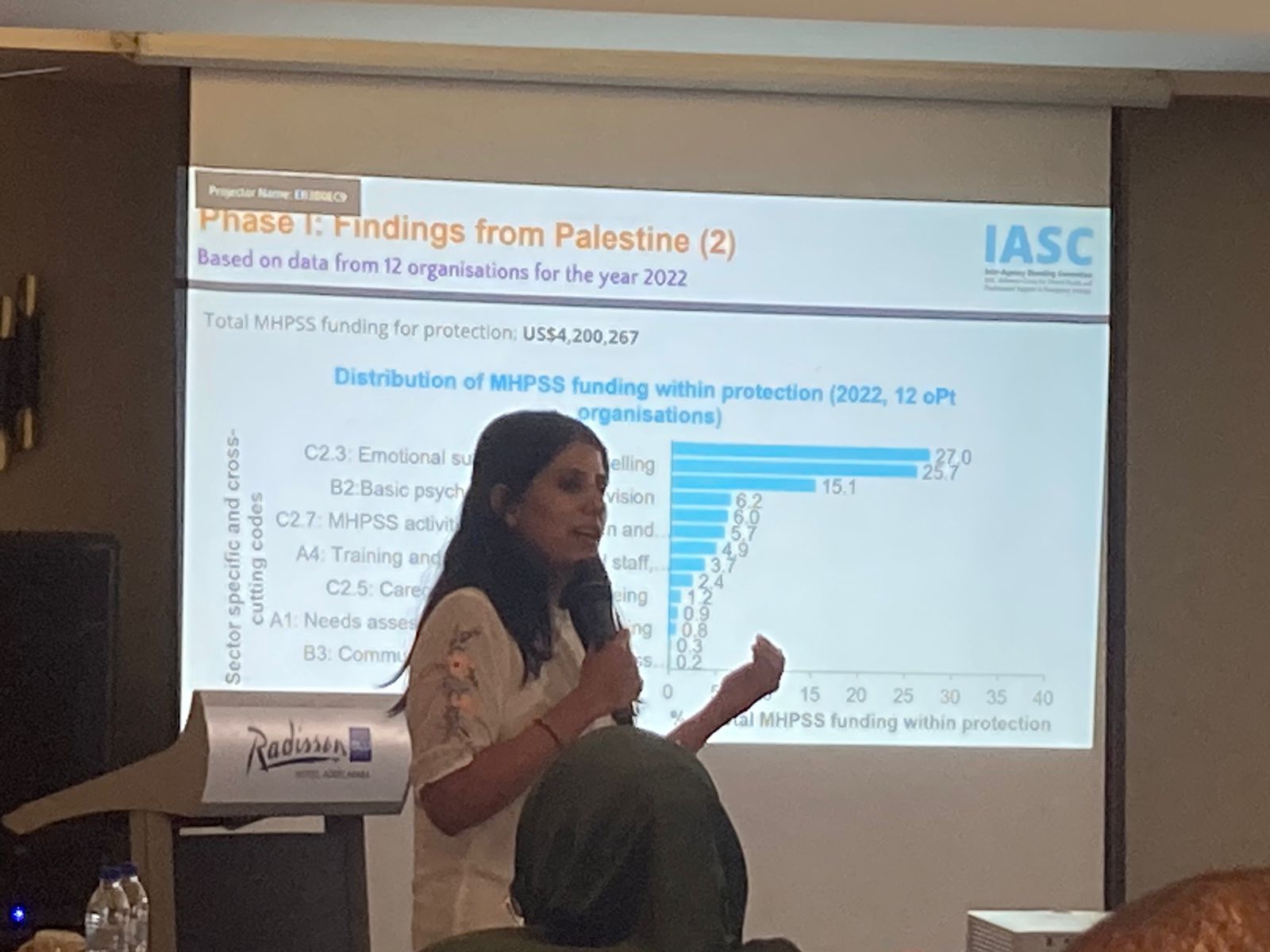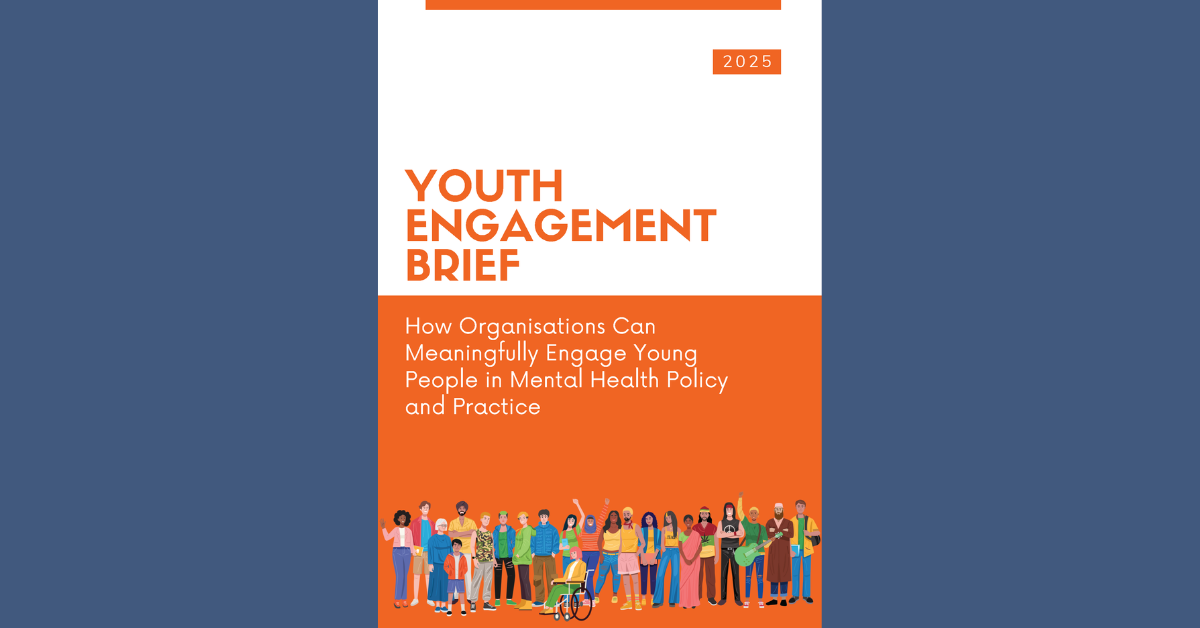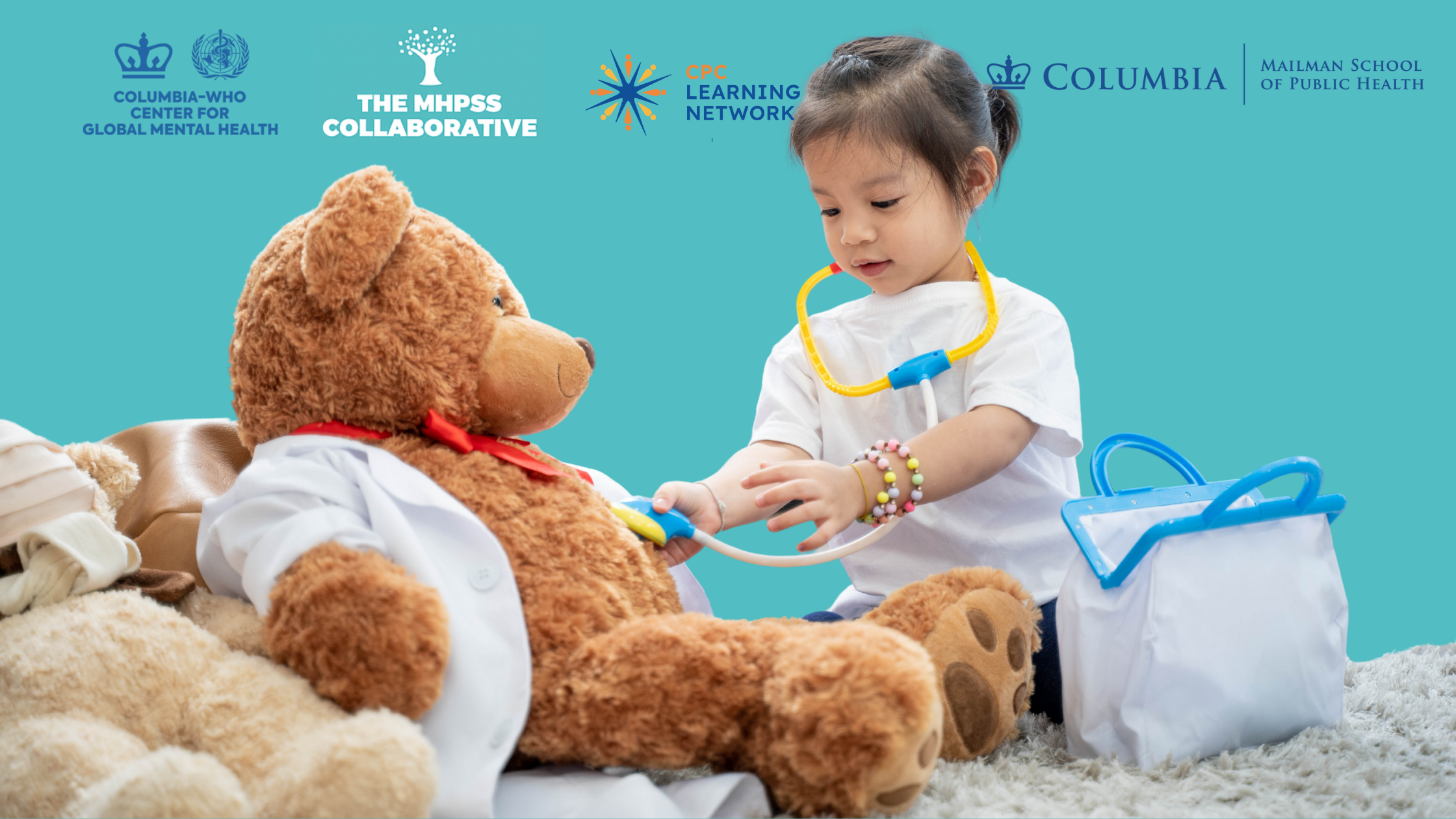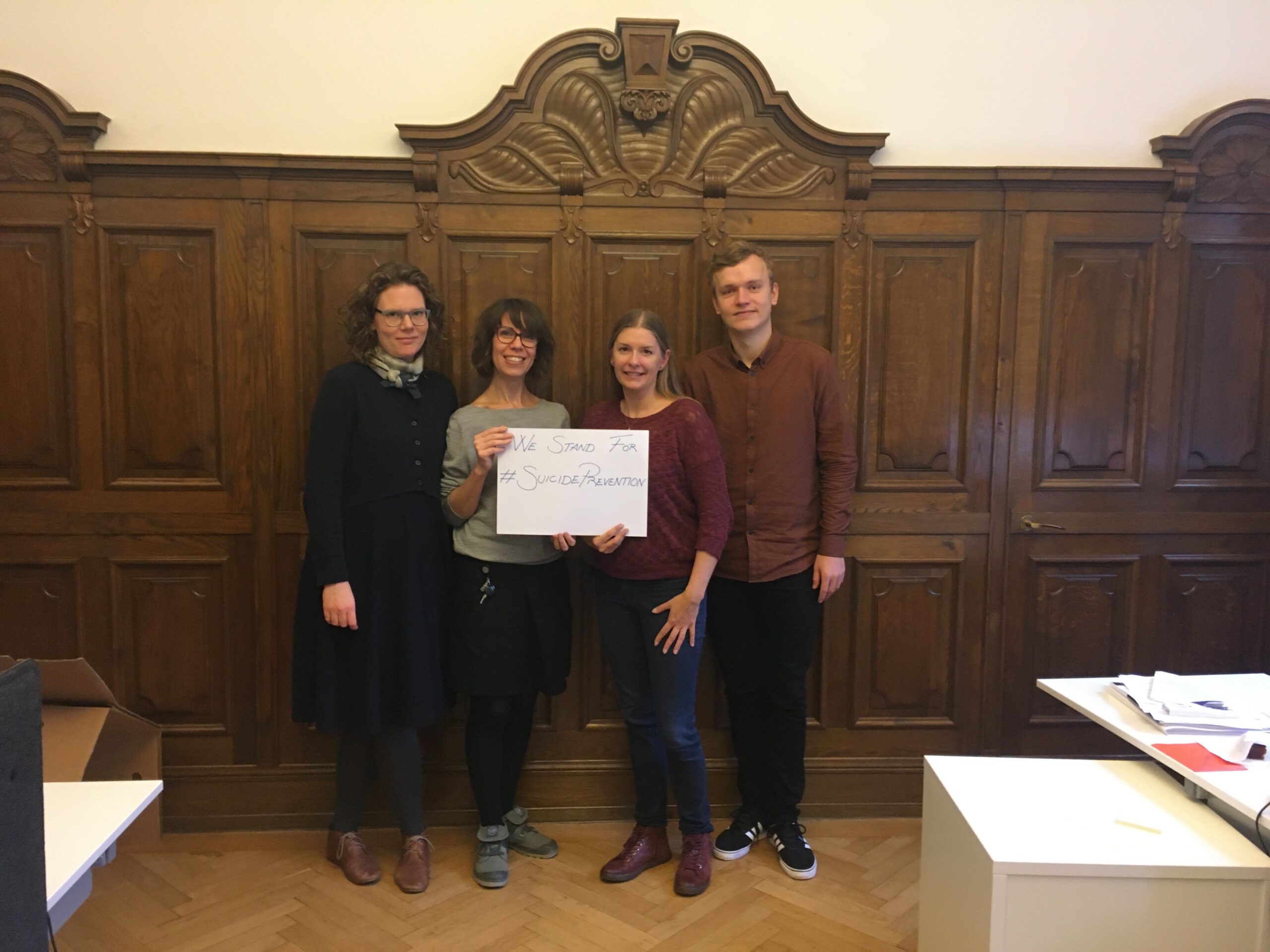How much funding for an emergency goes towards improving the mental health and psychosocial well-being of the affected population? At the moment, there is no good answer to this question.
Accurate information about allocation of funding for MHPSS is critical to identifying gaps and planning and advocating for the best possible allocation of resources. Commissioned by the IASC Reference Group for MHPSS in Emergencies and funded by the World Health Organization, the MHPSS Collaborative has been working on developing a coding template and methodology for tracking MHPSS funding in emergencies across sectors.
The Collaborative’s research advisor Deepali Pavagadhi is in Addis Ababa this week to present the project at the IASC MHPSS technical working group meeting. Deepali will collect feedback and engage the technical working groups in testing the coding template, which was created based on the minimum service package (MSP) in collaboration with technical working groups in Occupied Palestinian Territories and Cox’s Bazar in Bangladesh.
Why is this analysis necessary?
The existing system for tracking funding in emergencies doesn’t have codes for tracking MHPSS activities. The cross-sectoral nature of MHPSS means that MHPSS activities are often embedded in other programmes, making it more difficult to identify the expenses. To give one example – setting up communal safe spaces in a temporary camp for social and recreational activities can’t be reported as MHPSS in the current financial tracking systems.






